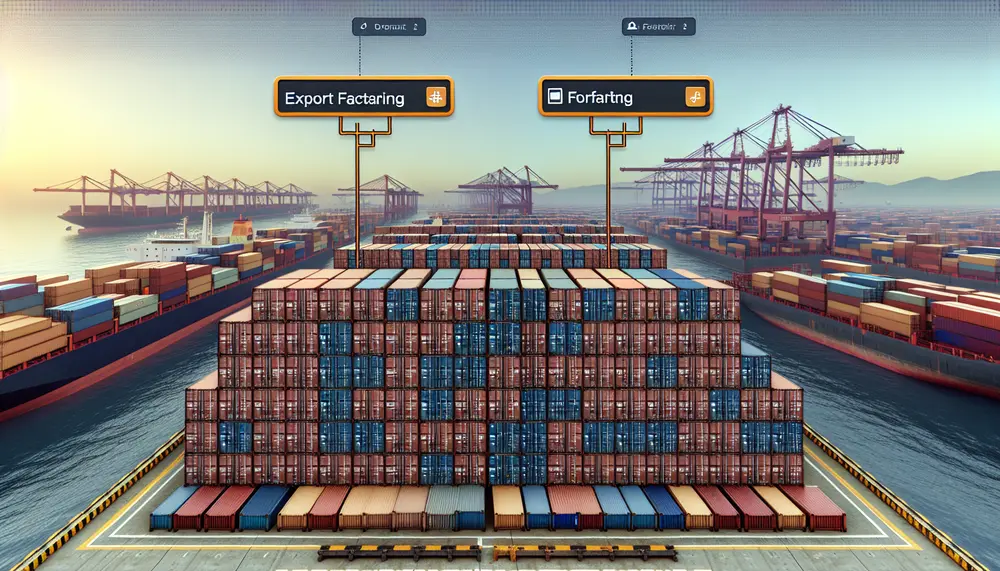risk transfer
risk transfer
What is Risk Transfer?
Risk transfer is a key concept in the financial industry that involves moving potential monetary losses from one party to another. In the context of financial factoring, it refers to the shifting of credit risk associated with accounts receivable from a business to a factoring company.
Understanding Financial Factoring
Financial factoring is when a business sells its invoices to a third party, the factoring company, at a discounted rate. This process helps businesses get immediate cash flow instead of waiting for clients to pay their invoices within the credit term. It's an effective way to manage cash flow for businesses that need quick access to funds.
How Does Risk Transfer Apply in Financial Factoring?
In financial factoring, risk transfer occurs the moment a business signs a factoring agreement. The factoring company buys these invoices and assumes the risk of non-payment by the original debtors. If a debtor fails to pay, the factor is typically responsible for executing the collection of the debt, bearing the loss if collection efforts are unsuccessful.
Benefits of Risk Transfer in Factoring
The primary benefit of risk transfer through factoring is that it allows businesses to offload the uncertainty of invoice payments. This risk mitigation can enable companies to focus on their core operations without worrying about the unpredictability of incoming cash flows. Moreover, companies can avoid the costs and time associated with chasing down payments.
Different Types of Risk Transfer in Factoring
It's important to note that not all factoring agreements transfer risk in the same way. Non-recourse factoring completely transfers the credit risk to the factoring company. With recourse factoring, the business may still be liable if the debtor does not pay the invoice. The terms of risk transfer should be clearly outlined in any factoring agreement.
Considerations for Businesses
Businesses should weigh the costs and benefits of risk transfer when considering financial factoring. Transferring risk might provide peace of mind, but it often comes at a price, usually reflected in the fees or discount rates offered by the factoring company. Companies should thoroughly assess their financial situation and risk appetite before opting for a factoring agreement that includes risk transfer.
Blog Posts with the term: risk transfer

Factoring is a financial transaction where businesses sell their invoices to a factor for immediate cash, providing liquidity and allowing them to focus on core activities. IFRS provides guidelines for reporting these transactions in financial statements, ensuring transparency and consistency...

Reverse factoring has become crucial in supply chain finance, offering liquidity benefits but posing significant accounting challenges under US GAAP due to classification and disclosure complexities. Recent FASB updates emphasize transparency, requiring detailed disclosures to ensure financial statements reflect the...

Reverse factoring is a financial tool that optimizes cash flow and supplier relationships but poses complex accounting challenges, particularly in liability classification and disclosure. Its treatment under HGB emphasizes prudence with conservative reclassification practices, while IFRS focuses on derecognition criteria,...

Factoring involves selling accounts receivable to a third party for immediate cash flow, while Confirming (reverse factoring) is when a financial intermediary pays supplier invoices on behalf of the business, extending payment terms. Both services aid in managing different aspects...

Export factoring is a financial service where businesses sell their invoices to a factor for immediate capital, enhancing cash flow and transferring credit risk in international trade. Forfaiting involves selling longer-term receivables to a forfaiter who assumes all risks, turning...

Factoring is a financial strategy where businesses sell their outstanding invoices to a third party, known as a factor, to receive immediate funding and manage cash flow effectively. Different types of factoring—recourse, non-recourse, spot, and maturity—offer various benefits tailored to...

Export factoring without recourse is a financial service where exporters sell their invoices to a factor who assumes all credit risks, ensuring the exporter gets paid even if the overseas customer defaults. This arrangement boosts cash flow and reduces administrative...

Supply chain finance (SCF) optimizes cash flow by extending payment terms to suppliers, enhancing working capital without affecting the balance sheet. Factoring involves selling accounts receivable at a discount for immediate funds and transferring collection responsibility to the factor; it's...

Maturity Factoring is a financial service where businesses sell their future-due invoices to a factor who pays them on the invoice's maturity date, allowing for aligned cash flow and predictable financial planning. It differs from traditional factoring by not providing...

Full service factoring is a financial solution that provides businesses with immediate cash by purchasing their accounts receivables, offering services like credit management and collections. It improves liquidity without incurring debt, allows companies to focus on core operations, and can...

The Factoring X-Method is a flexible financial solution that allows businesses to quickly convert outstanding invoices into cash by selling them to a factoring company, which adapts the service based on the business's size and client creditworthiness. It enhances liquidity,...

Nonrecourse export factoring is a financial service where businesses sell their international invoices to a factoring company, which assumes the risk of non-payment if the foreign customer defaults. This tool improves cash flow and reduces credit risks for exporters, allowing...

Financing and factoring are two financial strategies for managing cash flow, with financing involving loans to be repaid over time and factoring entailing the sale of accounts receivable for immediate cash. Each option has distinct terms, costs, benefits, and impacts...

Export factoring is a financial solution that allows exporters to sell their accounts receivable for immediate cash, improving liquidity and reducing administrative burdens. This method offers benefits such as risk mitigation, access to advanced tools, improved financial ratios, and credit...
